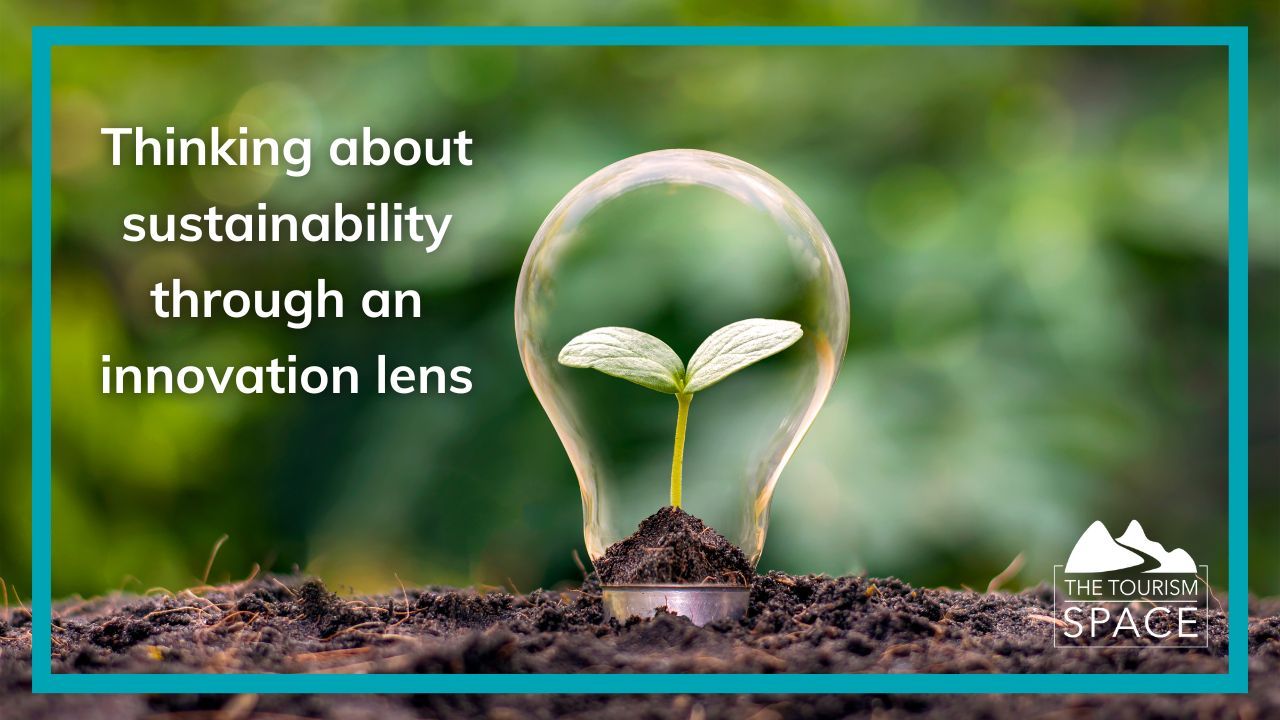
Thinking about Sustainability through an Innovation Lens - 6 Takeaways from The Huddle
I didn’t really know what to expect from Alan Doherty, Sustainability Innovator when he took on the mantle as Guest Speaker in The Huddle this month. While we knew his talk promised to shed light on the intersection between ‘sustainability’ and ‘innovation’, even Alan himself acknowledged the perceived ‘fluffy’ nature of both of these words as he opened the talk.
I got that. Pre-talk, I found myself full of questions. What is innovation? Is it a process, an outcome, a decision, or an action…? What is sustainability? A process, an outcome, a decision, an action…? Is innovation a prerequisite for sustainability? Is it a principle of sustainability? Does it undermine sustainability?
It was clear I had a lot to learn. Writing this article has given me a chance to consolidate those learnings into a set of takeaways for myself. With Alan’s permission, I share them here.
-
View innovation for sustainability as a tangible action:
Alan began by posing thought-provoking questions: How do we do innovation for sustainability? How do we operationalise innovation? Acknowledging the potential vagueness of these terms, Alan emphasised the need to view sustainability and innovation as tangible actions rather than abstract concepts. -
Approach innovation with purpose and method:
Innovation can be approached more deliberately and systematically. While it’s possible to stumble across a breakthrough innovation (think Eureka moments!), Alan highlighted the importance of setting aside dedicated time for innovation and actively seeking opportunities for change. He referred us to the Doblin Framework, which offers ten angles for innovation across all businesses, ranging from front-of-house improvements to back-end enhancements. I've already checked it out and yes, it's a framework that can serve as a checklist for businesses to identify areas where innovation can be applied. -
Collaborate to fuel your innovation engine:
Alan emphasised the power of collaboration in driving innovation. He urged professionals to engage with their communities, suppliers, and visitors to foster collaborative efforts. By involving a diverse range of perspectives, innovation can be anchored in all-important lived experiences and tangible data. Alan himself is experienced in using multidisciplinary approaches, such as design thinking workshops and strategy sprints, to tap into group creativity and expand the pool of ideas. -
Integrate innovation and tradition:
Contrary to common perception, innovation does not solely revolve around technology. Alan highlighted how innovation comes not just from new things but from approaching existing/old things in a new way. Tourism has a great opportunity to do this in the way that it preserves and shares traditions, heritage and local customs. He encouraged us to view tourism as a space to foster and maintain traditional practices, thus offering visitors a sense of place and authentic experiences. Tourism providers can create unique offerings that open up new and exciting ways to celebrate local culture and heritage. -
Bring nature to the innovation table:
Alan shared how more and more industries are incorporating the voice of nature in their innovation processes. Holding space for nature ensures we consider the implications of innovation for the natural world. He pointed out that the unstated driver behind much of the world’s technological innovation to date has been to return large amounts of profit to venture capitalists. Now, there is a recognition that natural capital, knowledge capital and social capital must also be returned. Innovation can in this way be aligned with regenerative principles. -
Model Innovation on the Principle of ‘Less is More':
As the world becomes increasingly virtual and AI-driven, tourism can counterbalance this with a back-to-basics offering, a chance for connection with people and communion with nature. Rather than constantly pursuing growth, we can innovate by focusing on quality over quantity. Alan shared his fear that the Metaverse will move people further and further from the real world and, with that, their sense of caring and responsibility for the real world may also decline. Tourism and travel in the real world can act as a counterbalancing force in this potential context.
I wrote down two overarching, takeaway questions inspired by Alan’s talk :
-
How do we innovate better so that we reach our sustainability goals faster?
-
How do we run good businesses and also be good ancestors?
These are powerful questions. Finding the answers will require powerful innovations, a new definition of success and a shift in the metrics we use to evaluate that success. A tall order indeed!
Tina O'Dwyer
Tina is a facilitator, mentor and coach with a particular interest in sustainable tourism, regenerative tourism, food tourism, tourism networks and collaborations. She is also a linguist with a strong command of Irish, German and French. Tina advises on regenerative approaches to tourism and has expertise in hosting and facilitating community and industry consultations and workshops that incorporate sustainable and regenerative approaches to tourism development. For more information, you can contact us at [email protected] or sign up to our weekly article for more insights here.

